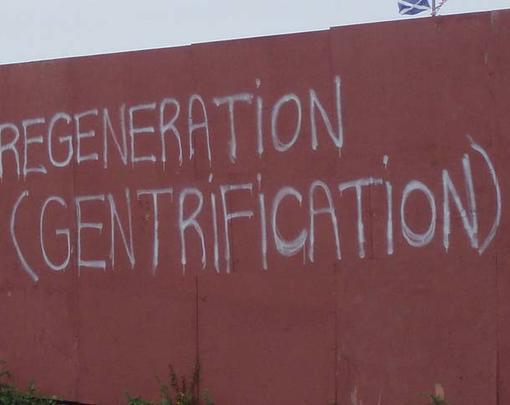Executive Summary
We are at a historic juncture. If we can secure a transformative and green recovery from Covid-19, the crisis could prove a watershed moment - a break from an unsustainable present and unjust past towards a reparative future anchored in a purposeful, inclusive economy. But there is no guarantee the Covid-19 conjuncture will not be resolved on terms that accelerate the conditions of the crisis. The path we take will depend on the actions we now take.
The public health crisis has further revealed the distressed state of our local economies, following decades of deliberate neglect, outsourcing, and relative economic decline for too many places and communities. At the same time, this crisis has underscored the importance of community. As we ready ourselves to reconstruct our economy, we must strive to make the recovery the starting point for a new birth of community across the UK: we must enter a new era of Community Wealth Building that grows economic democracy from the ground up – supported by a democratised state.
If the response to the crisis repeats the mistakes of 2008, the result will be an economy with all the injustices we had before, though even more ingrained and uneven. But it doesn’t have to go this way. The present crisis could well be a wake-up call to change course and to build a more local, generative, social and democratic economic system and a moment of crystallisation, with citizens and governments working together to build a new social contract and a genuinely inclusive economy.
In that sense, we must work to ensure that the response to the crisis ushers in a new era of Community Wealth Building as the basis of new local economic transformation plans to create the kinds of democratic, inclusive and community-based economies we need – economies truly centered on collective well-being, local resilience, ecological sustainability and economic justice. To do so, the movement needs to be properly resourced and supported, both in terms of local capacity building and policy development at all levels, to scale to the challenges and the demands.
Moreover, as businesses struggle to stay afloat amid the crisis, it is imperative that businesses grounded in local communities – the lifeblood of local economies - are not only protected but allowed to flourish. This crisis poses a threat of further consolidating the business landscape. By rooting our response in Community Wealth Building, we can lay the groundwork for pluralist models of business to thrive, safeguarding a prosperous future for social enterprises; rapidly expanding worker ownership of companies; facilitating the growth of cooperatives and mutual; and securing a path forward to enhance community businesses.
Community wealth building approaches can unlock local Green New Deals across the country. From using capital investment to invest in low carbon projects that create good, unionised, local green jobs, to reorienting pension funds and municipal bonds to finance a just transition, to the environmental benefits of local supply chains, many of the tools of community wealth building can be used to conjoin economic and environmental justice.
Building the democratic economy will also require a combination of policy actions from governments driven by a democratised state that reimagine economic relations. That will require a dual movement: efforts to nurture and grow the democratic economy from interventions and initiatives from central and local government, backed by a groundswell of strategies to grow it from the bottom up. In effect, this can create the conditions for the fertile soil from which Community Wealth Building can grow.
This can be sustained through a new financial ecosystem: the creation of a public state holding company, or several across devolved nations, can acquire hold distressed business assets during the crisis until such time as they can be relaunched under democratic forms of ownership as part of the economic recovery; a Social Wealth Fund, to invest in an economy fit for the future; National Investment Banks, to provide financing to public and private bodies in service to the social good; Inclusive Ownership Funds, to advance the aims and objectives of a pluralistic community business landscape; reforming procurement policies, to stimulate local supply; and the creation of a Community Wealth Building Act.
The Covid crisis has awoken people to the vital importance of community. It has exposed our interconnectedness and vulnerability, as well as demonstrated the precedence of the everyday place-based economy over the financialised global economy. It is the moment to cohere the movement for a democratic economy, to advance a true rebirth of community in this country and to make deep change for the long haul.
Conclusion
We sit at an historic crossroads where the Covid-19 crisis has laid bare the failures of our current system and positioned us on the precipice of change. We cannot return to business as usual and we must resist at all costs a doubling down on neoliberalism that was pushing beyond ecological limits and characterised by wealth extraction, inequality, poverty and precariousness.
From the dogged hard work of activists, innovators, entrepreneurs, local leaders, and organisations on the ground, Community Wealth Building and the movement to advance a democratic economy has been an effective response to the ills of our system. Now is the time for it to step fully into its transformative potential – to become the accepted means by which we transform our local economies and build a new political economic system from the ground up that serves all people and the planet.
This report was produced with Common Wealth for Power to Change on how to build a coherent Community Wealth Building ecosystem in the UK is now live on Common Wealth’s Website: https://www.common-wealth.co.uk/reports/democratic-by-design.






